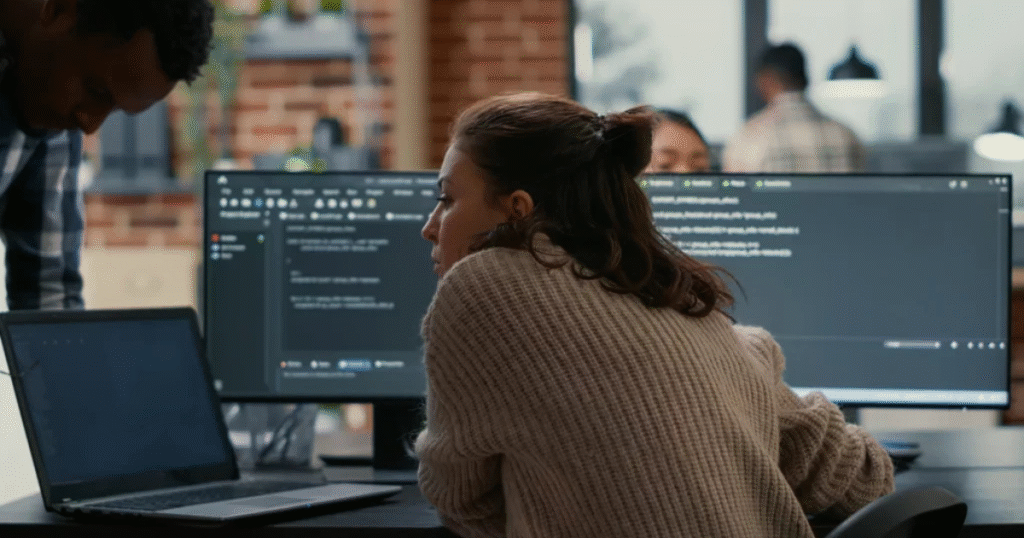Blockchain technology is changing the world. It is a new way to store and share information. Many universities now offer courses in blockchain. These courses help students learn about this exciting technology.
Blockchain is also the technology behind cryptocurrencies like Bitcoin. But it can do much more than just support digital money. It can be used to create smart contracts, track goods, and even vote in elections. Blockchain is a powerful tool for the future.
In this article, we will explore university courses for blockchain technology. We will look at what they teach, why they are important, and how they can help students in their careers.
Why Study Blockchain Technology?
Studying blockchain technology is a smart choice. Here are some reasons why:
- High Demand: Many companies need blockchain experts.
- Good Salaries: Blockchain jobs often pay well.
- Future-Proof Skills: Blockchain is here to stay.
- Innovation: You can work on cutting-edge projects.
Blockchain is still a new field. This means there are many opportunities for students. By learning blockchain, you can be part of the next big thing in technology.
Types Of University Courses For Blockchain
Universities offer different types of courses for blockchain. Some are short university courses. Others are full degree programs. Here are some examples:
- Short Courses: These last a few weeks or months. They teach the basics of blockchain.
- Certificates: These are longer than short courses. They provide more in-depth knowledge.
- Bachelor’s Degrees: These are 3-4 year programs. They cover blockchain and related topics.
- Master’s Degrees: These are advanced programs. They focus on research and specialization.
Each type of course has its own benefits. Students can choose the one that fits their goals.
What Do Blockchain Courses Teach?
Blockchain courses cover many topics. Here are some common ones:
- Basics of Blockchain: How it works and why it is important.
- Cryptography: The science of secure communication.
- Smart Contracts: Self-executing contracts with the terms written in code.
- Decentralized Applications (DApps): Apps that run on blockchain.
- Blockchain Security: How to keep blockchain systems safe.
Students also learn about real-world applications. They study how blockchain is used in different industries.
Industries Using Blockchain
Blockchain is used in many industries. In finance, it is used for secure transactions. In healthcare, it is used to store patient records. In supply chains, it is used to track products.
Here are some industries using blockchain
- Banking and finance
- Healthcare
- Supply chain management
- Real estate
Top Universities Offering Blockchain Courses
Many top universities now offer blockchain courses. Here are some examples:
- Massachusetts Institute of Technology (MIT): Offers courses on blockchain and money.
- Stanford University: Has a blockchain research group.
- University of Oxford: Offers a blockchain strategy program.
- National University of Singapore (NUS): Provides courses on blockchain development.
These universities are leaders in technology education. Their courses are highly respected.
Online vs. On-Campus Courses
Students can choose between online and on-campus courses. Both have their pros and cons.
Online Courses:
- Flexible schedule.
- Can be done from anywhere.
- Often cheaper.
On-Campus Courses:
- More interaction with teachers and students.
- Access to campus facilities.
- Better for hands-on learning.
Students should choose the format that works best for them.
Cost of Blockchain Courses
The cost of blockchain courses varies. Online courses are usually cheaper. On-campus courses can be more expensive. Some universities offer scholarships.
Here are some approximate costs
- Online courses: 500−500−2,000
- On-campus courses: 5,000−5,000−20,000
- Certification programs: 1,000−1,000−5,000

Skills You Will Learn in Blockchain Courses
Blockchain courses teach many useful skills. Here are some examples:
- Programming: Writing code for blockchain systems.
- Problem Solving: Fixing issues in blockchain networks.
- Analytical Thinking: Understanding complex systems.
- Teamwork: Working with others on blockchain projects.
These skills are valuable in many jobs. They can help students succeed in their careers.
Career Opportunities in Blockchain
Blockchain opens up many career paths. Here are some examples:
- Blockchain Developer: Builds blockchain systems.
- Blockchain Consultant: Advises companies on blockchain.
- Cryptocurrency Analyst: Studies digital currencies.
- Smart Contract Engineer: Creates and manages smart contracts.
These jobs are in high demand. They offer good salaries and growth opportunities.
How To Choose The Right Blockchain Course?
Choosing the right course is important. Here are some tips:
- Check the Curriculum: Make sure it covers the topics you want to learn.
- Look at the Faculty: Experienced teachers can make a big difference.
- Consider the Cost: Find a course that fits your budget.
- Read Reviews: See what other students say about the course.
Take your time to research. This will help you find the best course for your needs.
The Future Of Blockchain Education
Blockchain education is growing fast. More universities are adding blockchain courses. Online platforms are also offering more options.
In the future, blockchain courses will become even more advanced. They will cover new technologies and applications. Students who learn blockchain now will be ahead of the curve.
Challenges in Learning Blockchain
Learning blockchain is not always easy. Here are some challenges students may face:
- Complex Concepts: Blockchain can be hard to understand.
- Fast Changes: The technology evolves quickly.
- Technical Skills: Students need to learn programming and cryptography.
But with hard work and dedication, these challenges can be overcome.
How To Prepare For A Blockchain Course?
Students can prepare for blockchain courses in many ways. Here are some tips:
- Learn Programming: Start with languages like Python or JavaScript.
- Read About Blockchain: Get familiar with the basics.
- Join Online Communities: Connect with others interested in blockchain.
- Practice: Try building simple blockchain projects.
Preparation can make the course easier and more enjoyable.
Scholarships For Blockchain Courses
Some universities offer scholarships for blockchain courses. These can help reduce the cost of education. Many universities and tech companies offer scholarships to students interested in blockchain development, cryptography, and decentralized finance (DeFi).
- Many blockchain scholarships focus on emerging fields like Web3, smart contracts, and decentralized applications (dApps).
- Scholarships are available from blockchain foundations, universities, and tech firms to support students in learning blockchain technology.
These scholarships often cover tuition fees, certification costs, or even provide stipends for research projects. Some programs are specifically designed for underrepresented groups to promote diversity in the blockchain industry.

The Role Of Internships in Blockchain Education
Internships are a great way to gain experience. Many blockchain courses include internships. Internships play a crucial role in blockchain education by providing hands-on experience. internships allowing them to work on cryptocurrency projects, and blockchain security.
Through mentorship and industry exposure, interns gain practical skills that accelerate their career growth. Students can work with companies on real projects. It also gives them a chance to network with professionals.
Frequently Asked Questions
What is the best blockchain course for beginners?
Short courses or online tutorials are great for beginners. They teach the basics in simple terms.
Do I need to know programming for blockchain courses?
Yes, most courses require some programming knowledge. Start with languages like Python or JavaScript.
Are blockchain courses expensive?
It depends on the course. Online courses are often cheaper than on-campus programs.
Can I get a job after completing a blockchain course?
Yes, many companies hire blockchain experts. Completing a course can improve your job prospects.
Conclusion
University courses for blockchain technology are a great way to learn about this exciting field. They teach students the skills they need to succeed in the tech industry. With high demand for blockchain experts, these courses offer excellent career opportunities.
Whether you choose a short course or a full degree, studying blockchain can open many doors. These courses help students learn about this exciting technology. Start your journey today and be part of the future of technology.

